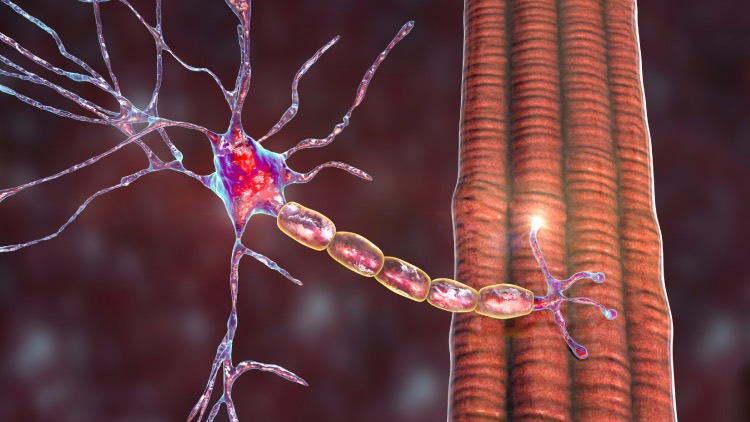How We Can Understand, Prevent, and Treat Muscle Atrophy
Muscle atrophy, also known as muscular atrophy, is a condition that can significantly impact one’s health and quality of life. As the leading pain center in Columbus, Georgia, Southeast Regional Pain Center is committed to providing valuable information about muscle atrophy, its symptoms, treatment options, and the potential long-term effects. In this blog post, we’ll explore the intricacies of muscle atrophy, shedding light on its consequences and emphasizing the importance of seeking professional help, including referrals to Southeast Regional Pain Center.
What is Muscle Atrophy?
Muscle atrophy refers to the gradual wasting away or loss of muscle tissue. This condition can affect various muscles throughout the body and may result from a variety of causes, including lack of physical activity, aging, certain medical conditions, or injuries that immobilize a limb or muscle group. Visiting a pain center for muscle atrophy is a huge step in getting control over this painful and irritating conditon.
Recognizing the Symptoms of Muscle Atrophy
Reduced Muscle Mass
The most obvious symptom of muscle atrophy is a noticeable reduction in muscle mass. This can result in a visibly smaller or thinner appearance of affected muscles.
Weakness and Fatigue
Muscle weakness and fatigue are common signs of muscle atrophy. Individuals may experience difficulty in performing routine tasks that were once easily manageable.
Limited Range of Motion
Muscle atrophy can lead to a reduced range of motion in the affected joints. This limitation may affect mobility and flexibility, making movement more challenging.
Twitching or Spasms
In some cases, individuals with muscle atrophy may experience muscle twitching or spasms. These involuntary movements can be uncomfortable and contribute to further muscle deterioration.
Treating Muscle Atrophy
Physical Therapy
Physical therapy plays a crucial role in treating muscle atrophy. Tailored exercises and rehabilitation programs can help strengthen muscles, improve flexibility, and restore range of motion. Southeast Regional Pain Center in Columbus, Georgia, offers comprehensive physical therapy services to address muscle atrophy and its associated challenges.
Nutritional Support
Proper nutrition is essential for maintaining and building muscle mass. A balanced diet rich in protein, vitamins, and minerals supports muscle health. Nutrition counseling at Southeast Regional Pain Center can provide personalized guidance on dietary changes to promote muscle recovery.
Electrical Stimulation
Electrical stimulation is a therapeutic technique that involves using electrical impulses to stimulate muscle contractions. This can be particularly beneficial for individuals with muscle atrophy, helping to maintain muscle tone and prevent further deterioration.
Medications
In some cases, medications may be prescribed to address underlying conditions contributing to muscle atrophy. Pain management specialists at Southeast Regional Pain Center can assess individual cases and recommend appropriate medications to alleviate symptoms and promote muscle health.

The Long-Term Effects of Untreated Muscle Atrophy
Chronic Pain
Untreated muscle atrophy can lead to chronic pain as the weakened muscles struggle to support the body’s structure. This pain can significantly impact daily activities and reduce overall quality of life.
Loss of Independence
Severe muscle atrophy can result in a loss of independence, making it challenging for individuals to perform basic tasks such as walking, standing, or even maintaining proper posture. This can contribute to a decline in overall functional abilities.
Compromised Joint Health
Muscle atrophy often affects the joints, leading to increased stress on surrounding tissues. Over time, this can result in joint pain, inflammation, and a higher risk of developing conditions such as osteoarthritis.
Reduced Quality of Life
The cumulative effects of muscle atrophy can have a profound impact on an individual’s overall quality of life. Reduced mobility, chronic pain, and loss of independence can contribute to feelings of frustration, depression, and anxiety.
Treating Muscle Atrophy at Southeast Regional Pain Center
If you or someone you know is experiencing symptoms of muscle atrophy, seeking professional help is crucial. A referral from your doctor to Southeast Regional Pain Center in Columbus, Georgia, can provide access to a multidisciplinary team of pain management specialists, physical therapists, and healthcare professionals.
At Southeast Regional Pain Center, our experts are dedicated to developing personalized treatment plans to address muscle atrophy and its associated challenges. With state-of-the-art facilities and a patient-centered approach, we strive to enhance the well-being and quality of life for individuals dealing with muscle atrophy.
Taking Action for Muscle Health
Understanding the long-term effects of muscle atrophy underscores the importance of early intervention and comprehensive treatment. Seeking professional help at Southeast Regional Pain Center in Columbus, Georgia, ensures access to specialized care and a team of experts dedicated to improving muscle health and overall well-being. If you or a loved one is dealing with muscle atrophy, take the first step towards a healthier, pain-free future by getting a referral from your physician to Southeast Regional Pain Center today. Then reach out and let us work with you for a pain-free future.